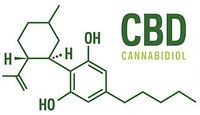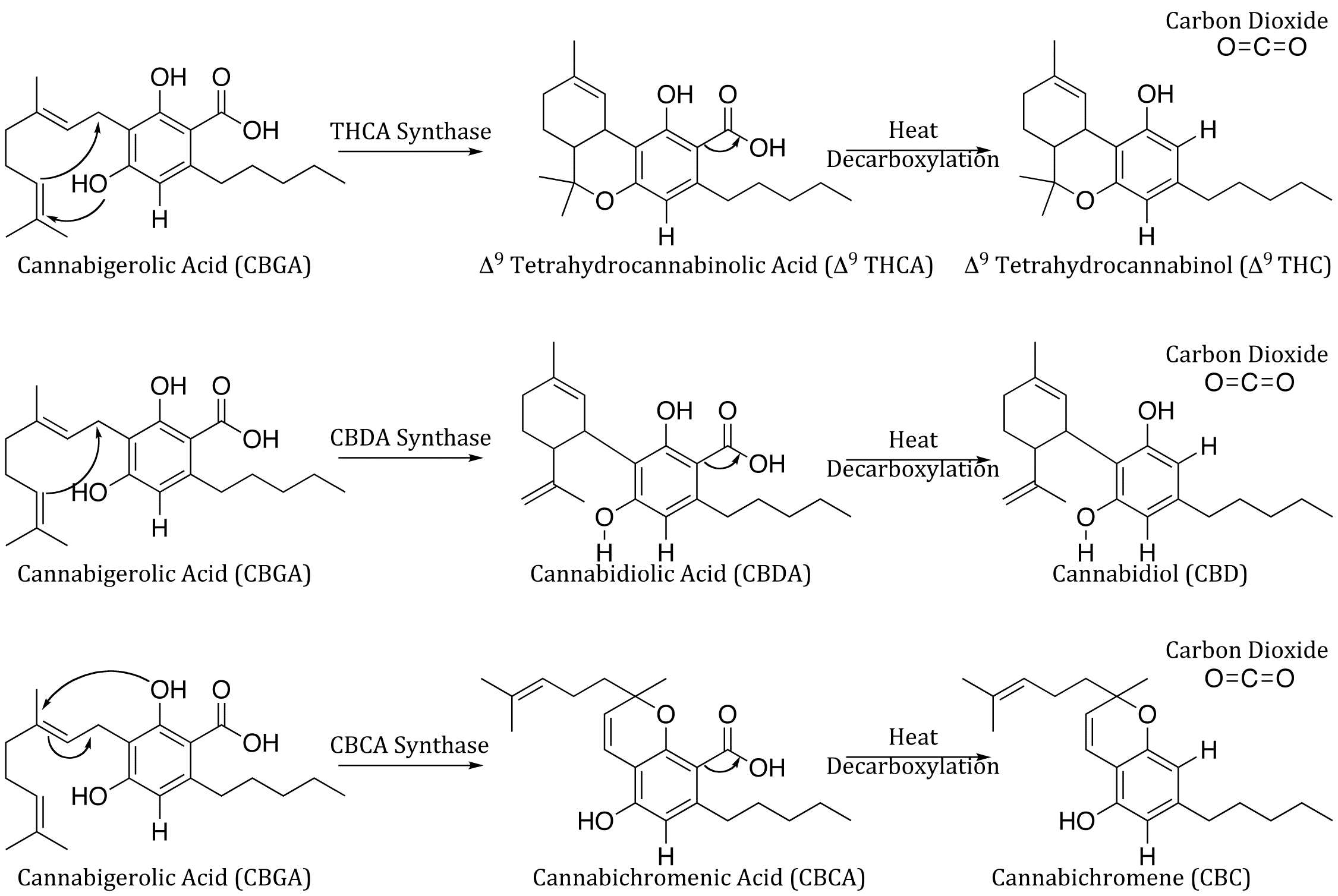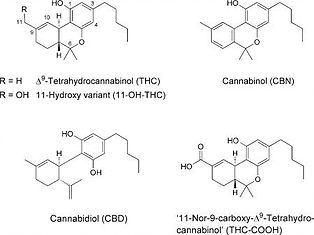Cannabis & Cancer

Synopsis:
Cannabinoids have shown an ability to cause tumor anti-genesis of cancerous tumors as well as apoptosis, or programmed cell death, of various cancer cells
Cannabinoids are generally thought of as a therapeutic medicinal product. The studies on cannabinoids over the past decade have opened up the possibility that cannabinoids such as cannabidiol, Tetrahydrocannabinol, etc., can induce anti-tumor-genesis by way of interaction with the hosts immune system.
I would recommend the decriminalization and descheduling of cannabinoids such that they can more easily be used in terms of medicinal benefit.
The medical community does not yet embrace the full panel of use when regarding cannabis.
Cannabidiols, stereochemistry, anti-tumeric effects, oxidative properties, immunological functions
Cannabidiol (CBD), the 2nd most active ingredient in cannabis has been shown to modulate regulatory t-cell production within the immune system. This is linked to interactions with the CB1 and CB2 receptors; “The results of the CB2 receptors’ activation include changes in the cytokine release from immune cells 64. Phyto cannabinoids with high affinity for CB2 receptors, such as THC, exhibit modulatory effects on both cellular and humoral immunity. THC action was linked to the inhibition of IFN‐γ production, change in Th1/Th2 profile, and suppression of T‐cell proliferation 65, 66. Non psychotropic cannabinoids with low affinity for CB receptors have also been proven to exhibit immunomodulatory action. CBD shows anti‐inflammatory effects by antagonizing CB receptors agonists and subsequently leading to the inhibition of immune cell migration 67. Most of the studies indicate that cannabinoids exhibit immunosuppressive action 68.
The most extensively examined immunomodulatory effects of cannabinoids in context of cancer are regarding the changes in the activity of T cells. As mentioned above, cannabinoids can influence T‐cell proliferation and reduce their cytolytic activity, but according to research conducted to date, their most significant effects include the modulation of T helper cell subsets (Th1/Th2) and TGF‐β secretion 62, 69."(1)
This trait amongst the CB receptors has classified CBD as an immune suppressive, which is defined as a reduction of the activation or efficacy of the immune system. This can be a positive property in relation to processes of the immune system that are overactive in lieu of desirable outcomes. Cytolysis is defined as the pathological breakdown of cells by the destruction of their outer membrane. cytolysis can be critical when considering that “high reducing power in the cytosol protects glutamate. This protection is especially important for neurons, because glutamate is a neurotransmitter and is an essential precursor for the synthesis of glutathione and proteins.” (2)
However, another function of the glutamate preservation can be held highly in regard to cancer development, “Glutamine is the most abundant amino acid in the blood and tissues. It is essential for tumor growth and marked changes in organ glutamine metabolism are characteristic of the host with cancer. Because host glutamine depletion has adverse effects, it is important to study the regulation of glutamine metabolism in cancer and to evaluate the impact of glutamine nutrition in the tumor-bearing state. “(3)
There by suggesting that if a cytocylic reduction can protect glutamate, in turn limiting glutamine production, The rate at which certain cancers can form within its host is diminished. There is of course a negative aspect to an over abundance of glutamate within the host, however, “studies have shown that glutamate toxicity may be prevented by antioxidants. Cannabidiol, THC and several synthetic cannabinoids all were demonstrated to be antioxidants by cyclic voltammetry. Cannabidiol and THC also were shown to prevent hydroperoxide-induced oxidative damage as well as or better than other antioxidants in a chemical (Fenton reaction) system and neuronal cultures.”(4)
Cancer, as well its host, need glucose for nurishment, however the ratios of glucose needed for each organism to function is drastically different. Our bodies turn carbohydrates into glucose as it is the most essential sugar, providing energy to our systems. In turn, the cancer feeds off of the product of that same metabolic process. This of course is transferred to the cancer cells via the cardiovascular system of its host. A study from 2006 found that “β-cells exposed to high glucose levels in the presence of cannabinoid receptor stimulation appeared to promote insulin release, an effect that was reversed by rimonabant but not CB2 receptor antagonists.”(5) Suggesting that the endocannabinoids have a direct role in energy homeostasis, or the homeostatic control of energy balance. Which is a biological process that involves the coordinated homeostatic regulation of food intake and energy expenditure.
It may be possible that an intentional manipulation of LDH may be able to lessen the conversion of lactate into pyruvic acid for a predetermined time such that the cancer can be sufficiently starved while providing an adequate amount of energy to the body. This of course takes into account dietary roles of the patient as well as cardiovascular monitoring. Cannabidiol, (CBD), has proven to cause programmed cell death of breast cancer cells. A study from 2011 attempts to describe the process in which it happens. “Here, we have shown CBD-induced cell death of breast cancer cells, independent of cannabinoid and vallinoid receptor activation. Electron microscopy revealed morphologies consistent with the coexistence of autophagy and apoptosis. Western blot analysis confirmed these findings. We showed that CBD induces endoplasmic reticulum stress and, subsequently, inhibits AKT and mTOR signaling as shown by decreased levels of phosphorylated mTOR and 4EBP1, and cyclin D1. Analyzing further the cross-talk between the autophagic and apoptotic signaling pathways, we found that beclin1 plays a central role in the induction of CBD-mediated apoptosis in MDA-MB-231 breast cancer cells…...Our study revealed an intricate interplay between apoptosis and autophagy in CBD-treated breast cancer cells and highlighted the value of continued investigation into the potential use of CBD as an antineoplastic agent.”(6) An antineoplastic is defined as, “Acting to prevent, inhibit or halt the development of a neoplasm (a tumor).An agent with antineoplastic properties. For example, oxaliplatin (Eloxatin) is an antineoplastic used in the treatment of metastatic colon cancer.”(7)
This is not a derivation from the once controversial treatment offered by the Brzezinski clinic in Houston texas; it is in fact the same methodology applied. In fact, based on a publication updated in 2016 by cancer.gov, shone positively on the combination of CBD administration in conjunction with chemo therapy citing that “CBD has also been demonstrated to exert a chemo preventive effect in a mouse model of colon cancer.[21] In this experimental system, azoxymethane increased premalignant and malignant lesions in the mouse colon. Animals treated with azoxymethane and CBD concurrently were protected from developing premalignant and malignant lesions. In in vitro experiments involving colorectal cancer cell lines, the investigators found that CBD protected DNA from oxidative damage, increased endocannabinoid levels, and reduced cell proliferation. In a subsequent study, the investigators found that the antiproliferative effect of CBD was counteracted by selective CB1 but not CB2 receptor antagonists, suggesting an involvement of CB1 receptors.[22] Another investigation into the antitumor effects of CBD examined the role of intercellular adhesion molecule-1 (ICAM-1).[12] ICAM-1 expression has been reported to be negatively correlated with cancer metastasis. In lung cancer cell lines, CBD upregulated ICAM-1, leading to decreased cancer cell invasiveness.”(8)
Cancer has been known to thrive in acidic environments, the diol group within cannabidiol may very well play a roll in the oxidation, if not of the cancer cells itself, then attribute to an overall more alkaline environment. (yes the blood is a buffer, even the best buffer experiences minuscule PH changes when maintaining itself amongst various acids and bases.) Lastly, only in regards to the intended scope of this report, the stereochemistry of various cannabinoids, shown in figure 1.A, and their synthase suggests not only that they may be able to take different forms thru ought the metabolic process, but also that the potential to pass the blood brain barrier in varying amounts is an important factor when procuring and administering dosages in conjunction with desired effects. The delta 9 position of THC molecule has been incorporated in many cancer targeting cannabis oils, Rick Simpson Oil RSO in particular, for much longer than many of the studies that substantiate its claims have been available or even thought of. Rick Simpson Oil, RSO, is a form of cannabis oils that is unique in that the THC molecules stereo-chemistry is in the delta-9 position, which aids in the molecule itself withstanding metabolic processes such that it can be received by the target receptors at a higher percentage than its generate state. This is relayed in detail through various studies and will be linked in source 9.
Unfortunately people focus on THC's therapeutic properties and completely neglect the true medicinal properties of the cannabis plant. Cannabinoids are good for much more than providing appetite, pain management, and mental laxity. have shown an ability to cause tumor anti-genesis of cancerous tumors as well as apoptosis, or programmed cell death, of various cancer cells. At times, it is necessary to separate the 2 molecules entirely, however, THC and CBD go hand in hand for the most part. Imagine a world where CBD, Cannabidiol, could not be found naturally and could only be created synthetically in a lab. I'm sure that you would surmise that these articles would be no surprise; that clinical trials would have already come to a close; that this would be available over the counter or via easy pharmacy pick up. Even merino has been a pharmaceutical remedy far before the natural herb was allowed to be considered.

